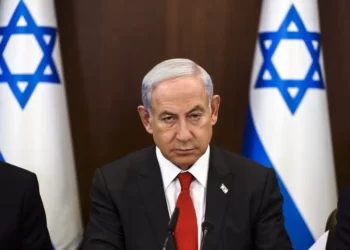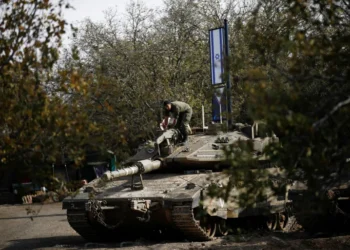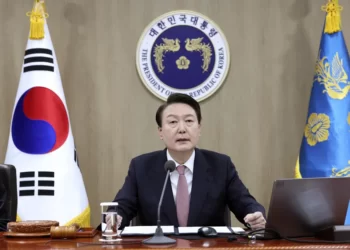In a sudden twist of fate, Syria has witnessed the fall of its longtime dictator, President Bashar al-Assad.
While many view this as a glimmer of hope for the long-suffering Syrian people, the outgoing U.S President has expressed concern.
Joe Biden acknowledged the significance of the moment, calling al-Assad’s fall at the hands of rebel group Hayat Tahrir al-Sham (HTS) a chance for Syria’s citizens to “build a better future for their proud country.”
However, in the same breath, he warned of the inherent risks ahead.
“It’s also a moment of risk and uncertainty. As we all turn to the question of what comes next, the United States will work with our partners and the stakeholders in Syria to help them seize an opportunity to manage the risk.”
Joe Biden
Biden’s assurance of U.S help should be taken with a grain of salt, because he is leaving office in a month’s time and US President-elect, Donald Trump has indicated that his administration would not get involved in any conflict in the country.
Trump wrote on Truth Social, before switching to all uppercase letters for emphasis, “Syria is a mess, but is not our friend.”
“THE UNITED STATES SHOULD HAVE NOTHING TO DO WITH IT. THIS IS NOT OUR FIGHT. LET IT PLAY OUT. DO NOT GET INVOLVED!”
Donald Trump
The sudden end of 53 years of al-Assad family rule casts uncertainty over the security situation in the Middle East, including the presence of an estimated 900 US troops in Syria.
There are 900 US troops stationed in Syria, and on the same day that al-Assad fled the country, the US Air Force launched targeted air strikes against 75 targets linked to ISIL.
The US Central Command said that these were ISIL (ISIS) camps and operatives and that damage assessments are under way.
The timing of these strikes appears to be a message of warning to the potential leaders of Syria.
CENTCOM Commander, Michael Kurilla stated that all organisations in Syria should know that the US will hold them accountable if they partner with or support ISIL (ISIS) in any way.
As such, it seems that maintaining military might and containing ISIL (ISIS) influence remains a top priority for the US.
Professor Lays Out Tasks For Syria’s Leaders
In a statement, Hayat Tahrir al-Sham (HTS) Head, Abu Mohammed al-Julani said that former Prime Minister Mohammed Ghazi al-Jalali will supervise state institutions until they are handed over, adding that al-Jalali will remain at the helm until the transition.
Commenting on Bashar al-Assad’s ouster, Stephen Zunes, a Professor of politics at the University of San Francisco, laid out the immediate tasks for the new leaders of Syria.
“The priorities of the new government, however it forms, is solidifying control over territories that they currently operate in, trying to restore government institutions, free the prisoners, help repatriate exiles and displaced peoples.
“I don’t think a high priority will be necessarily controlling every metre of Syrian territory, though certainly that would be their goal in the long term.”
Stephen Zunes
The Analyst stated that a number of actors will try to influence what that new government looks like, including Turkey, Iran and Saudi Arabia.
Zunes noted, “But it’s not outside forces that led to Assad’s downfall, but the Syrian people.”
He asserted that his strong impression is that for good or for ill, the Syrians will try to form a government that “reflects what they believe is their best interest.”
Meanwhile, Hind Kabawat, Director of interfaith peacebuilding at the Carter School for Peace and Conflict Resolution, opined that there is “lots of work ahead” in Syria to build an inclusive and democratic country.
Kabawat, a Syrian Christian, told a news agency, “We’re not 100 percent sure what will happen, but for the past few days, my Christian community [in Syria] has been in good shape,” without experiencing any “violations.”
That said, she noted, “we shouldn’t relax,” but stay vigilant in monitoring whether opposition forces honour their pledge to respect religious minorities. “The last thing we want right now is for Syria to have a sectarian war,” Kabawat added.
The offensive that toppled al-Assad was led by a rebel group dominated by HTS, which was previously associated with al-Qaeda and advocated a hardline interpretation of Islamic law and stance on religious minorities.
READ ALSO: Election Buzz Fails to Deter GSE Growth





















